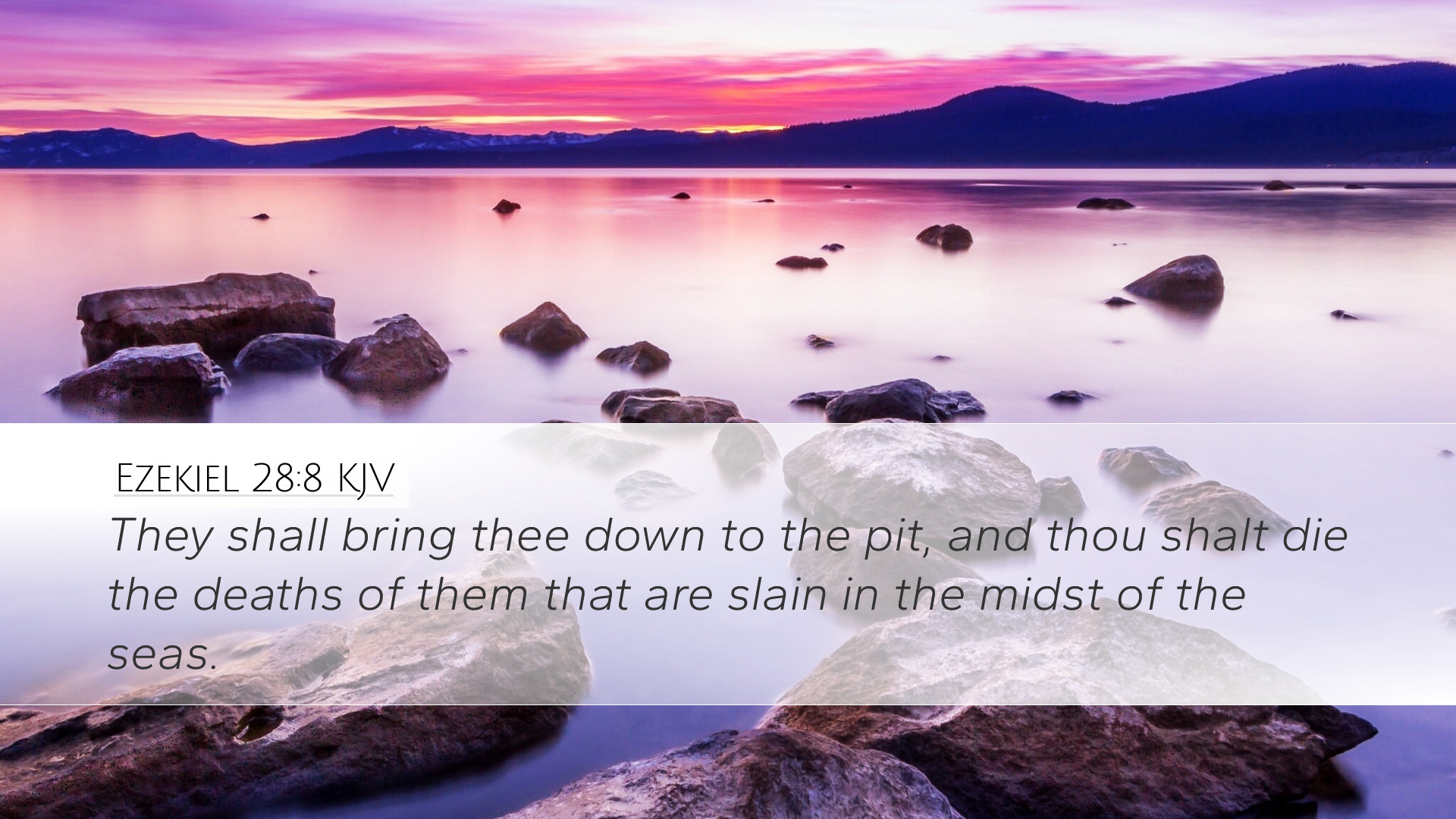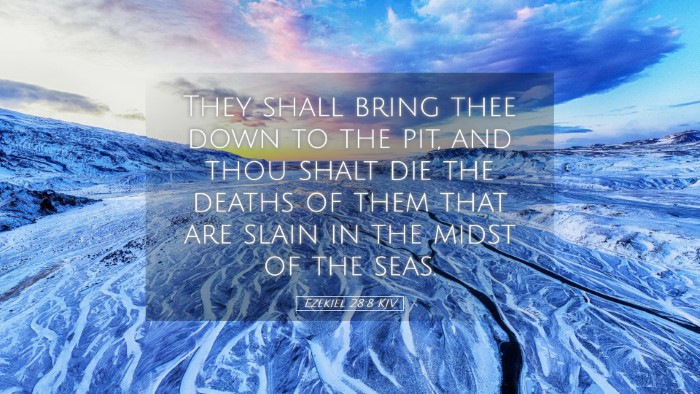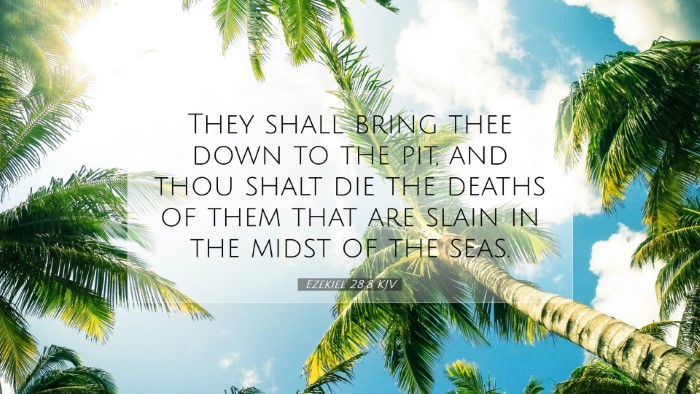Commentary on Ezekiel 28:8
Ezekiel 28:8 serves as a pronouncement of judgment against the king of Tyre, depicting the impending demise brought about by enemies. It states:
"They shall bring thee down to the pit, and thou shalt die the deaths of them that are slain in the midst of the seas."
Contextual Overview
This passage is imbued with rich theological significance, reflecting on themes of pride, judgment, and the ultimate fall of those who exalt themselves against God. The chapter addresses not merely a historical figure but offers a typological representation of the adversarial nature that opposes divine authority.
Interpretative Insights
1. The Nature of the Judgment
The phrase "bring thee down to the pit" denotes a descent into destruction, commonly understood as a symbol of utter defeat. Matthew Henry emphasizes the totality of this downfall, suggesting that it reveals divine justice aimed particularly at those who have oppressed others (Henry). This illustrates God’s sovereign power to overthrow the mighty.
2. The Symbolism of the Sea
The "midst of the seas" indicates a chaotic and perilous setting. Adam Clarke points out that the sea often symbolizes a place of danger and instability. This imagery enhances the severity of the king's punishment, demonstrating that his wealth and defenses will ultimately prove useless against divine retribution. The sea here signifies not just physical tumult, but existential ruin as well.
3. The Theological Implications of Opposition to God
Albert Barnes provides insight into the broader theological principle at play in this passage—pride leads to downfall. The king of Tyre exemplifies the attitude of self-sufficiency that ultimately leads to a disconnection from God. His riches and wisdom, once tools for prosperity, become instruments of his demise due to his refusal to acknowledge God's supremacy (Barnes).
Application for Pastoral Ministry
This verse serves as a warning for leaders to remain humble in the face of responsibility. It challenges them to rely on divine guidance rather than personal prowess or earthly riches.
- Humility: Pastors should promote a culture of humility, recognizing that positions of power are gifts from God.
- Accountability: Leaders must accept accountability for their actions, especially when engaging in practices that exploit others.
- Reliance on God: This passage encourages reliance on God rather than self-sufficiency, embracing the belief that true strength is found in humility.
Reflections for Students and Scholars
For those studying scripture, Ezekiel 28:8 encourages deep reflection on the nature of divine judgment and its implications for both historical and contemporary figures of authority.
- Historical Context: Understanding the background of Tyre's wealth and maritime power helps grasp the gravity of the king's fall.
- Theological Studies: Scholars can contextualize this judgment within a larger biblical theme of resistance against God.
- Comparative Analysis: Drawing parallels with other judgment passages in scripture can provide rich material for exegesis and application.
Conclusion
Ezekiel 28:8 stands as a significant warning against pride and self-reliance. It serves not only as a condemnation of the historical figure of the king of Tyre but also as an enduring message for all who hold power. The assurance of God's judgment provides both a cautionary tale and an encouragement for humility, transparency, and reliance on divine wisdom.


